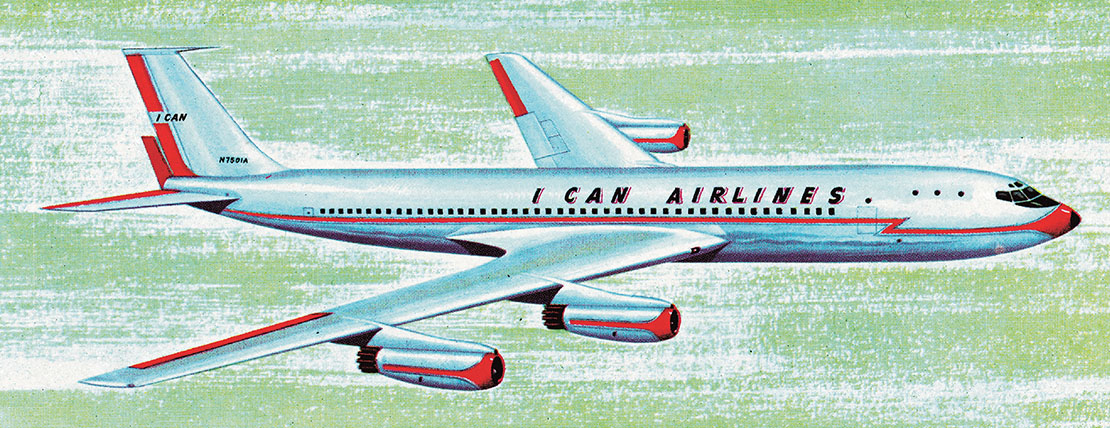Airline Industry Jobs Hover Below Pre-COVID Levels
A recent NBC News report highlights the airline industry’s ongoing struggle to address staffing issues that began with the arrival of the coronavirus in early 2020, when stay-at-home orders and COVID-19 fears led to a significant drop in air travel.
As NBC News reported, Bureau of Transportation Statistics data show the airline industry — including full-time and part-time employees at passenger and cargo airlines — shed one out of 10 jobs from February 2020 to October of that year.
“While the airlines filled most of the lost jobs, there’s still a large deficit of pilots,” according to NBC News.
“Airlines have blamed staffing issues and bad weather for the rash of flight delays, cancellations and higher prices that have burdened air travelers over the past few months,” NBC News’ Nigel Chiwaya wrote.
Willis Orlando, senior product operations specialist at Scott’s Cheap Flights, told NBC News that the lack of employees and pilots has led to supply chain problems similar to those faced by the oil, car and consumer electronics industries.
“You can’t pull a pilot off the street,” Orlando said. “Pilots need a lot of training. When they allowed pilots to leave in 2020, the chain of pilots got interrupted. That’s super important. It’s not enough that they don’t have enough pilots now; they don’t have enough pilots in the pipeline.”
Delta to Pay Flight Attendants for Boarding Time
Taking a step that CNBC called “a first for a major U.S. airline,” Delta Airlines has begun to pay flight attendants during boarding.
As CNBC noted, flight attendants are typically paid starting when the aircraft doors close. Delta began the boarding pay, half of flight attendants’ hourly rates, in early June. The airline has also increased boarding time for narrow-body flights to 40 minutes from 35 minutes, which Delta says is “one of several steps we’re taking to add resiliency to our operation,” according to CNBC.
“The pay changes were announced as a union campaign by the Association of Flight Attendants that started in late 2019 and picks up steam again as the COVID pandemic crisis wanes for airlines,” wrote CNBC’s Leslie Josephs, noting that Delta’s more than 20,000 flight attendants are not unionized, unlike those at other major U.S. airlines.
United Partners with OneTen Coalition
United Airlines has collaborated with OneTen, a coalition of chief executives and companies committed to creating 1 million family-sustaining careers for Black workers, the Chicago-based airline has announced.
The collaboration with OneTen comes as United has already hired more than 6,000 people since January, with the expectation to hire another 8,000 this year, and a goal of bringing on 50,000 new employees in the next five years, according to United.
United joins more than 60 companies, part of the OneTen coalition, that have committed to significantly increasing the hiring of Black talent without four-year college degrees into family-sustaining jobs by improving their hiring, retention, upskilling and advancement practices to support diverse talent.
“Joining OneTen will build on our current talent practices to further develop, retain and advance diverse talent to positions across the airline, better reflecting the customers and communities United serves,” said United CEO Scott Kirby, who also serves as chair of the Business Roundtable’s Education and Workforce Committee.
“I look forward to learning from and working with other companies to close the opportunity gap for Black talent and increase opportunities for underrepresented groups in our workforce.”
British Pilots’ Union Accuses easyJet of ‘Corporate Bullying’
A group of pilots allege that U.K. airline easyJet has engaged in “corporate bullying” by suggesting that disciplinary action could be taken against absent staff “amid a wave of COVID-related sickness,” MSN reports.
In a recently leaked email seen by the Financial Times, easyJet management warned pilots and crew members that current levels of staff absences were “not sustainable going forward,” and noted the company’s ability to take formal action against individuals. In addition, easyJet CEO Johan Lundgren revealed that the level of staff absences had been as high as 20% at some of its bases in early April.
The email also warned that disciplinary processes “could be fast-tracked if an individual’s level of absence was deemed excessive,” MSN reports, with the easyJet email noting that “triggers for formal action are guidelines and we may, if deemed necessary, skip a stage where the absence continues to be poor.”
The British Airline Pilots’ Association took umbrage with the email’s tone, saying it “amounted to corporate bullying,” with the union’s general secretary Martin Chalk calling for easyJet management to provide “visible and obvious” reimbursement, given the level of ill will among easyJet staff.
“We have urged management to recognize that dictates from on high are counterproductive and causing ill feeling amongst easyJet staff, who have taken significant personal losses to support the company over the last two years,” Chalk said in a statement. “For pilots, safety is critical and, while our members have proved time and again through the COVID crisis that they will go the extra mile to get the job done, they will not do so at the expense of safety.”
“I look forward to learning from and working with other companies to close the opportunity gap for Black talent and increase opportunities for underrepresented groups in our workforce.”




